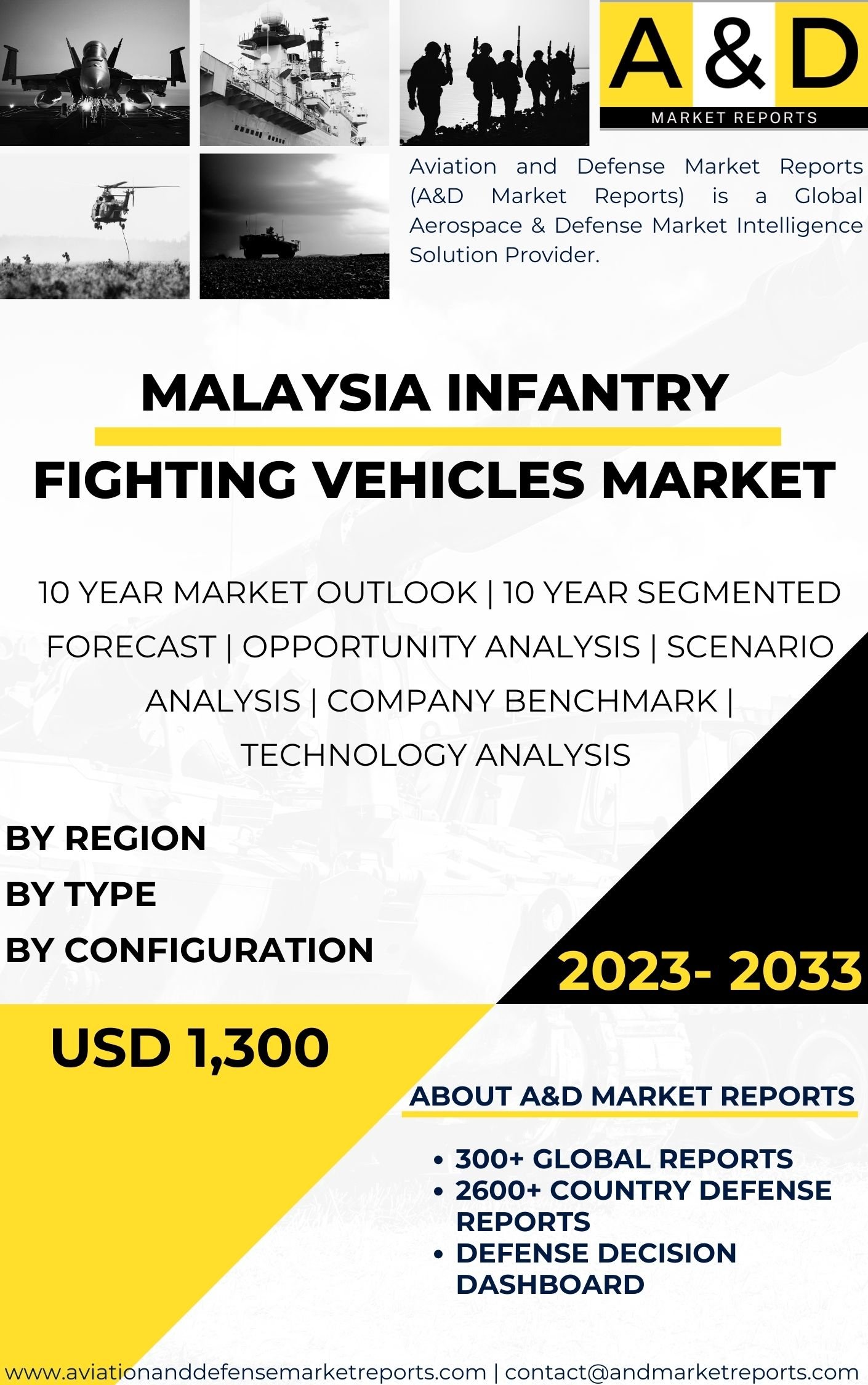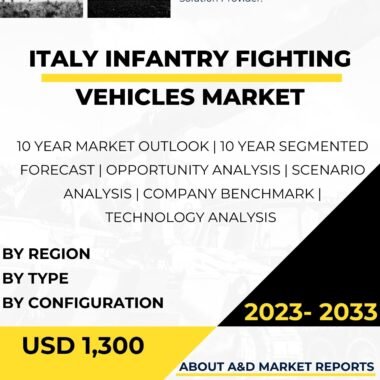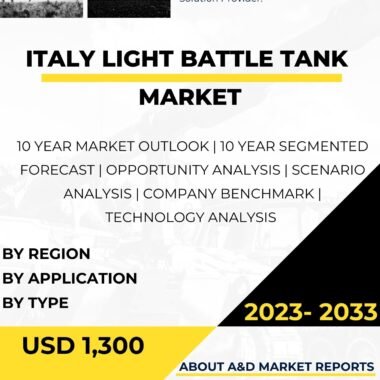Description
The Infantry Fighting Vehicles (IFV) market in Malaysia has been an area of growing interest and development in recent years, reflecting the country’s commitment to modernizing its armed forces and enhancing its land-based capabilities. Infantry Fighting Vehicles are critical assets that provide armored transport, offensive firepower, and infantry support, making them indispensable in modern warfare.
One of the primary drivers of the IFV market in Malaysia is the government’s recognition of the importance of having a versatile and capable ground force. As a strategically located nation in Southeast Asia, Malaysia faces diverse security challenges, including territorial disputes and regional tensions. The integration of Infantry Fighting Vehicles into its defense strategy enables the Malaysian Armed Forces to maintain a credible and agile ground force, capable of responding swiftly to various threats.
IFVs offer several significant advantages over traditional armored personnel carriers and other ground-based platforms. They combine the capabilities of transport vehicles and combat tanks, providing infantry with the mobility, protection, and firepower necessary for effective operations on the battlefield. IFVs are designed to carry a squad of infantry while offering enhanced armor protection and the ability to engage enemy targets with their onboard weaponry.
Moreover, IFVs can be equipped with a variety of armaments, including cannons, machine guns, and anti-tank guided missiles, making them highly adaptable to different operational scenarios. This versatility allows IFVs to effectively engage both armored and infantry targets, providing a decisive edge in ground engagements.
The Malaysian government has recognized the importance of international collaborations in acquiring and developing IFV technologies. Partnerships with leading global defense companies and technology providers have facilitated access to cutting-edge IFV systems and expertise. These collaborations have enabled technology transfer and capacity building, contributing to the growth of Malaysia’s domestic IFV capabilities.
Furthermore, Malaysia has been actively investing in local research and development (R&D) initiatives to foster indigenous IFV technologies. By encouraging homegrown innovation, Malaysia aims to achieve self-reliance in IFV development and strengthen its defense industrial base.
While the IFV market in Malaysia shows promise, it is not without challenges. One of the primary hurdles is the high cost of developing and acquiring advanced IFV systems. These armored vehicles require significant investment in research, development, and testing. Budget constraints may impact the pace and scale of IFV acquisition and development efforts.
Moreover, IFVs must meet stringent safety and performance standards. The military relies on these vehicles to protect soldiers and provide effective firepower on the battlefield. Ensuring the reliability and resilience of IFVs is critical to maintaining operational readiness.
Additionally, IFVs must be capable of operating in various terrains and environments. Malaysia’s diverse geography, which includes tropical rainforests and urban areas, demands IFVs that can traverse rugged terrain and navigate congested urban landscapes.
Looking ahead, the IFV market in Malaysia is poised for further growth. The government’s commitment to modernizing its armed forces and adopting advanced defense technologies will drive continued investments in Infantry Fighting Vehicles. As IFVs continue to evolve and demonstrate their effectiveness, they are likely to play an increasingly pivotal role in Malaysia’s defense strategy.
Moreover, Malaysia’s participation in regional security collaborations and military exercises will likely influence its IFV requirements. As the country seeks to strengthen its position as a key player in regional security and defense cooperation, the demand for advanced IFV systems with interoperability and compatibility with allied forces will increase.
In conclusion, the Infantry Fighting Vehicles market in Malaysia has become a focal point of interest and development. The government’s focus on modernizing its defense capabilities and investing in cutting-edge technologies has paved the way for the integration of IFVs into its military strategy. International collaborations and domestic research efforts have positioned Malaysia as a participant in the global IFV landscape.
However, challenges related to budget constraints, technology development, and operational requirements must be addressed proactively to sustain and enhance the growth of the Infantry Fighting Vehicles market in the years to come. By maintaining a versatile and capable IFV capability, Malaysia can effectively enhance its ground force readiness, respond to various security challenges, and bolster its overall defense posture.




